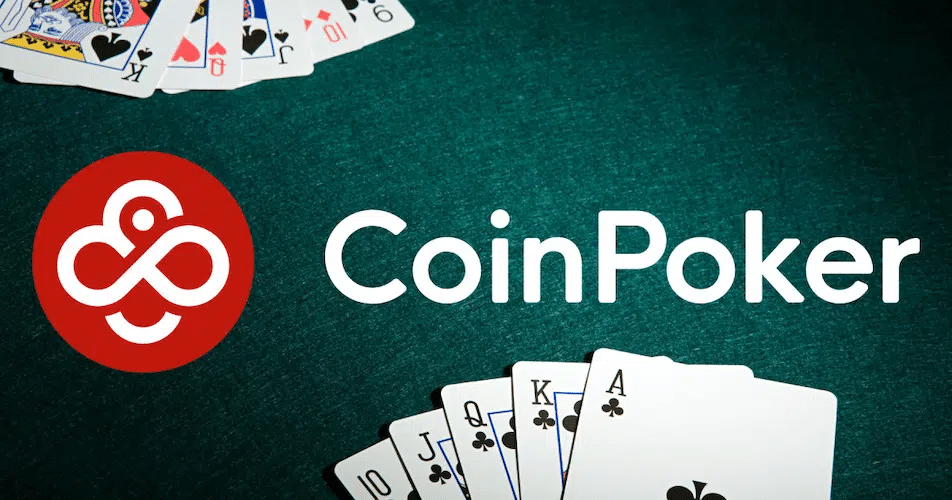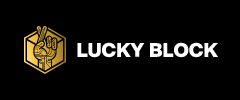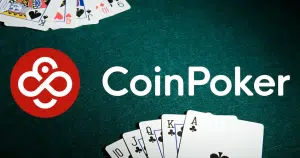Australia’s Self Help Addiction Resource Centre (SHARC), a leading charity focused on gambling addiction, is pressing the government to take a strong stand by enforcing a complete ban on gambling advertisements. The charity has voiced these concerns while the government considers a more diluted version of such measures.
SHARC Challenges Australia’s Softened Approach
Australia currently holds the unenviable title of the world’s highest gambling nation per capita, with Australian gamblers losing a staggering AUD 25.9 billion annually. In a recent letter to the government, SHARC’s CEO, Clare Davies, emphasized the urgency of completely banning gambling ads to tackle this national issue.
Although the Australian government has long acknowledged the negative societal effects associated with gambling, they have so far avoided taking any drastic steps. However, after extensive discussions surrounding the possibility of a gambling ad ban, it seems the government is now ready to act.
Yet, to the disappointment of those opposed to gambling, including SHARC, the government is not considering a full ban. Instead, it is preparing to implement a more limited approach that will cap the number of gambling ads displayed. The new plan would restrict gambling advertisements to two per hour until 10 p.m., with additional restrictions preventing ads from airing during the hour before any sporting event and throughout the event itself.
While this compromise aims to balance the interests of both sides, critics argue that the proposed measure may end up satisfying neither. The reduced ad exposure could hurt gambling companies’ revenue without completely addressing the concerns of advocates who are pushing for the total removal of ads. This compromise, many believe, could lead to frustration on both sides of the debate.
Gambling Ads in Australia
Australia has been tightening its regulations on gambling advertisements to address growing concerns about the impact of such ads on public health, particularly among vulnerable groups like children and problem gamblers. Under current laws, gambling ads are strictly prohibited during live sports broadcasts between 5 a.m. and 8:30 p.m., including the five minutes before and after the event. This restriction applies to all platforms, including television and online streaming services. The Australian Communications and Media Authority (ACMA) has been actively enforcing these rules, recently issuing a formal warning to Network Ten after its streaming service, 10 Play, aired gambling ads during prohibited times.
Moreover, there is increasing momentum towards a more comprehensive ban on gambling advertisements. The Interactive Gambling Amendment (Ban on Gambling Advertisements) Bill 2024, currently under consideration in the Australian Parliament, aims to phase out all forms of gambling advertising over three years. The proposed ban reflects growing public and political pressure to address the harms associated with gambling, as over half of Australians believe that there is already too much gambling advertising.
SHARC Calls for a Firm Ban
SHARC continues to stand firm in its demand for a complete ban. According to Davies, gambling ads do not just harm gamblers; they also place emotional and financial strain on their families and friends. She also pointed out a particularly troubling issue—certain gambling companies appear to be targeting younger audiences through partnerships with celebrities and athletes, which resonates deeply with Australian youth.
This concern has been echoed by several groups who believe that associating sports with betting, especially in the minds of children, could have long-term negative consequences. Critics argue that repeated exposure to such ads could create an environment where betting is seen as a normal part of sports, fostering harmful habits early on.
Anything less than a comprehensive ban on online gambling advertising will do nothing to protect Australians falling into the grips of gambling addiction.
Australian Medical Association President Steve Robson
In its letter, SHARC cited research indicating clear links between gambling and several severe social issues, including mental health struggles, substance abuse, domestic violence, poverty, and homelessness. The organization believes that a firm ban on gambling ads could help reduce these issues over time.
The charity’s position aligns with the views of many politicians, as well as other health and problem gambling advocacy organizations, who similarly push for stricter regulations to curb gambling’s negative impact on society.
Opposing Views: Protecting Free-to-Air Media
One of the primary arguments against SHARC’s proposed blanket ban is its potential negative effect on free-to-air media. Advertising revenue is crucial for the survival of many free-to-air broadcasters, and removing gambling ads entirely could have serious financial repercussions for these media outlets.
Some argue that these ads have a significant negative impact, with studies showing that exposure to gambling advertisements can normalize gambling behavior among young people. A 2022 study published in the Journal of Gambling Studies found that adolescents who were frequently exposed to gambling ads were more likely to engage in gambling activities themselves, often starting at a younger age. The Australian Medical Association and other health organizations have also raised concerns, emphasizing that such advertisements glamorize gambling, leading to an increased risk of developing problem gambling behaviors later in life. These groups advocate for stricter regulations or even a complete ban on gambling advertisements to protect vulnerable youth.
On the other hand, proponents of gambling advertising argue that there is insufficient evidence to link these ads directly to harmful gambling behaviors among youth. Industry groups often cite studies that suggest other factors, such as parental influence and socioeconomic status, play a more significant role in determining whether a young person will engage in gambling. Furthermore, they argue that the current regulatory framework, which restricts gambling ads during times when children are most likely to be watching, is sufficient to mitigate any potential risks. Some also argue that banning these ads could have unintended economic consequences, such as reducing funding for sports and other community events that rely on gambling sponsorships.
Despite these arguments, SHARC and its supporters maintain that the societal benefits of eliminating gambling ads outweigh the potential harm to media companies. They stress that the financial impact on free-to-air media does not compare to the widespread damage gambling addiction inflicts on individuals and communities across Australia.
SHARC Determined to See Stricted Measures
As Australia faces a growing public debate over the issue of gambling advertisements, SHARC continues to push for a complete ban, citing the harm that gambling ads cause to individuals and their families. Meanwhile, the government’s proposal to cap ads rather than ban them outright leaves both sides of the argument unsatisfied. For now, the debate rages on, with SHARC determined to see stricter measures put in place to protect Australian citizens from the dangers of gambling addiction.

Building a Leading Crypto Poker Platform: The CoinPoker Journey
Launched in 2017, CoinPoker has quickly risen through the ranks to become a prominent player in the online poker space, frequently cited by industry experts like Card Player Magazine, PokerScout, and Techopedia as one of the top online poker platforms. Unlike traditional online poker sites that rely on fiat currencies, CoinPoker operates with cryptocurrency, allowing players to bet using Tether (USDT) while leveraging blockchain technology to ensure the security and segregation of user funds.
The platform’s focus on transparency is a direct response to past industry scandals, such as the notorious Full Tilt Poker incident in 2011, where customer funds were mixed with operational funds, leading to insolvency and a crisis known as ‘Black Friday’ in the online poker world. As more online poker sites begin accepting cryptocurrencies as a deposit option, CoinPoker stands out by fully embracing digital currencies for all poker-related activities. Players on the platform have the option to deposit not only USDT but also Bitcoin, Ethereum, Solana, Polygon, Binance Coin, or CoinPoker’s native token, CHP. Notably, CHP token holders benefit from a 33% rakeback, making it an attractive choice for regular players.
Adding to its credibility, CoinPoker has attracted high-profile ambassadors, including former Austrian footballer turned poker professional Mario Mosböck and British poker pro Patrick Leonard. In a post on X, Mosböck highlighted their commitment to helping CoinPoker’s leadership build what they aim to be the world’s premier online poker site.
I partnered with @CoinPoker_OFF as an official ambassador. Alongside @padspoker our mission is to guide the new leadership group to build the world´s best online poker room.
This huge challenge will only succeed by serving our community and we need your help on that path 🧵 1/2 pic.twitter.com/Fk3baV8Dqq— Mario Mosböck (@mariomosboeck) August 8, 2024
A key feature that sets CoinPoker apart from its competitors is its use of blockchain technology to provide Proof of Reserves (PoR). This PoR mechanism demonstrates CoinPoker’s financial integrity, showing that the platform holds enough assets in reserve to cover all user deposits, with a current reserve amounting to approximately 105% of customer deposits, which totals around $16 million. CoinPoker ensures that customer funds are securely held in compliance with regulatory standards, separate from the company’s operational funds, which are stored in different wallets.
CoinPoker operates under a license from Curaçao eGaming, offering a variety of poker games, including No Limit Hold’em and Pot Limit Omaha, across cash games and tournament formats. The platform is available for download on Windows and Android devices, making it accessible to a broad audience. New players are welcomed with a generous 150% match bonus on their first deposit, up to 2000 USDT, while CHP token holders can earn a substantial 33% rakeback on their gameplay.
Open a Coinpoker account here.
Related News
Lucky Block Casino – Decentralized Gambling Platform

- Bet With Crypto – BTC, ETH, USDT, LBLOCK and More
- Live Dealers – luckyblock.com
- Rated Best New Crypto Casino – No KYC
- Thousands of Slots, Blackjack, Roulette Games

